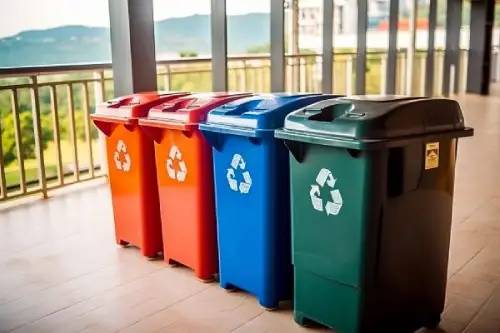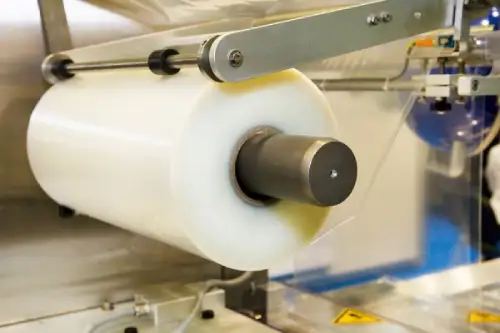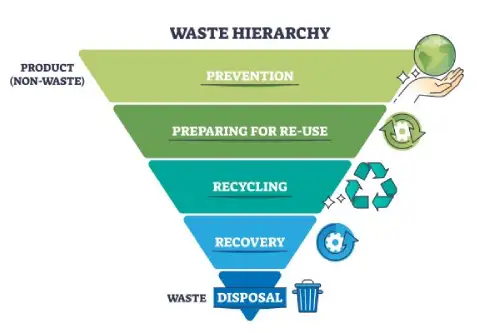
Welcome to an insightful exploration of responsible waste management within the United Kingdom’s regulatory framework. In this guide, we will delve into the intricacies of waste classification and proper disposal, while highlighting the positive role of polythene a product proudly manufactured by Abbey.
As a reputable polythene manufacturer, Abbey is dedicated to fostering a constructive perspective on polythene’s usage. Its attributes, including lightweight design, durability, and recyclability, contribute significantly to waste reduction—a crucial aspect of environmental conservation. Amid increasing environmental awareness, comprehending waste classification and disposal is paramount. Our focus will be on the UK’s regulations and rules, ensuring both legal compliance and the ethical duty to protect our environment.
Understanding Waste Classification in the UK
Waste, as categorised by UK regulations, can be broadly divided into three key groups: hazardous, non-hazardous, and special waste. These classifications play a pivotal role in guiding appropriate disposal methods and, in turn, bolstering environmental preservation.
Hazardous waste encompasses materials that possess characteristics potentially harmful to people or nature due to their chemical, biological, or physical properties. Examples include discarded electronic equipment containing harmful components like lead or mercury, and chemicals used in industrial processes.
Non-hazardous waste comprises materials that lack the hazardous traits of their counterparts. Common examples are household waste, such as food scraps and packaging, as well as construction debris like wood and concrete.
Special waste involves substances demanding specific handling and disposal procedures due to their distinct properties. An example is asbestos, a hazardous mineral used in older building materials that poses significant health risks when not managed appropriately.
The clarity of waste classification is important. By accurately identifying waste types, we ensure proper treatment and disposal methods. This prevents contamination, reduces adverse environmental effects, and promotes recycling and resource recovery. Through this understanding, we contribute to a cleaner, healthier future.
Polythene’s Role in Waste Reduction

Polyethylene, commonly referred to as polythene, offers a range of favourable attributes that make it a versatile and valuable material in various applications. Its lightweight nature ensures ease of handling and transportation, contributing to efficiency in logistics and minimising energy consumption during distribution. Additionally, polythene’s inherent durability lends itself to prolonged product protection, reducing the risk of damage and thereby minimising wastage.
One notable advantage of polythene lies in its recyclability, which aligns with modern sustainability goals. Its recyclable properties can potentially curtail the accumulation of non-biodegradable waste in landfills, aiding in the reduction of environmental impact. Moreover, when used for packaging, polythene plays a crucial role in combating food waste. By creating a barrier against external contaminants and maintaining a controlled atmosphere, it extends the shelf life of perishable goods. This, in turn, diminishes the likelihood of premature spoilage and enables consumers to make the most of their purchased items.
In the context of minimising food waste, polythene packaging assumes an instrumental role. Its protective attributes not only preserve the quality of products but also enhance overall food safety by preventing contamination. The lightweight and recyclable nature of polythene makes it a promising solution for sustainable packaging practices that can contribute positively to both business operations and environmental concerns.
Promoting Recycling and Reuse
In the United Kingdom, a growing emphasis on environmental sustainability has led to a concerted effort to manage polythene waste through recycling initiatives. Recycling options for polythene waste are readily available across the country, ranging from convenient collection points to advanced specialised facilities.
Recycling collection points, strategically positioned in various communities, offer an accessible avenue for individuals to dispose of their polythene waste responsibly. These collection points are often located in supermarkets, retail centres, and recycling depots, making it easier for citizens to participate in recycling efforts. Once collected, the polythene waste is directed to specialised facilities equipped with advanced recycling technologies.
The significance of reducing single-use plastics cannot be overstated. By engaging in polythene recycling, the UK is taking a proactive stance in tackling the challenge of plastic pollution. Recycled polythene can be transformed into a range of useful products, from packaging materials to plastic lumber. This not only reduces the demand for new plastic production but also contributes to the conservation of natural resources.
Promoting the use of recycled polythene products further underscores the commitment to a circular economy. Encouraging industries and consumers to opt for these eco-friendly alternatives can drive demand for recycled materials and spur innovation in sustainable manufacturing practices.
Compliance with UK Regulations

Businesses in the UK, including notable polythene manufacturers like Abbey, are subject to well-defined legal obligations concerning waste management and disposal. These obligations are integral to the country’s commitment to environmental conservation and sustainability.
Under UK law, businesses are required to handle their waste responsibly, adhering to the Waste (England and Wales) Regulations 2011 and equivalent regulations in Scotland and Northern Ireland. These regulations state that businesses properly classify their waste, ensure safe storage, and utilise authorised waste carriers and facilities for disposal. For manufacturers like Abbey, this involves meticulously documenting waste generation, transportation, and eventual disposal.
A cornerstone of UK waste management is the Waste Hierarchy, a hierarchical approach that guides businesses in making sustainable choices. The hierarchy ranks waste management strategies from most to least preferable, aiming to minimise waste and its environmental impact.
At the top of the hierarchy is waste prevention, urging businesses to minimise waste generation through streamlined processes. Subsequently, waste minimisation emphasises efficient use of resources. Polythene manufacturers like Abbey can explore ways to reduce raw material usage and optimise production methods.
Recycling takes centre stage as the next step, advocating for the reprocessing of materials like polythene. This aligns with the UK’s push for a circular economy. Beyond recycling, waste recovery involves harnessing energy or extracting value from waste. Lastly, disposal is the least favoured option, involving safe and responsible waste elimination.
Innovations in Eco-Friendly Disposal
In the pursuit of sustainable waste management, inventive methods have arisen to address the challenge of non-recyclable waste, including certain types of polythene. One notable approach is energy recovery, a process that entails extracting valuable energy from non-recyclable waste through controlled incineration.
Incineration, as a waste-to-energy solution, involves subjecting non-recyclable waste materials, like specific polythene variants, to high temperatures within specialised facilities. This process not only reduces the volume of waste but also yields heat and power, which can be utilised for electricity generation and heating purposes. It’s imperative to note that modern incineration techniques incorporate advanced technologies to ensure efficient combustion and minimise environmental impacts, including stringent emission controls.
Additionally, emerging technologies like pyrolysis and anaerobic digestion have gained recognition for their potential contributions to waste-to-energy initiatives. Pyrolysis employs a controlled heating process in the absence of oxygen to transform polythene waste into valuable gases and liquids, which can be further processed into fuels or chemicals. Anaerobic digestion, conversely, utilises microorganisms to decompose organic waste, producing biogas, a renewable energy source.
These innovative approaches exemplify a dynamic shift in waste management practices, not only addressing the challenge of non-recyclable waste but also exemplifying the evolving landscape of waste-to-energy solutions. By effectively converting waste into usable energy, these methods present a dual advantage of waste reduction and sustainable energy generation, aligning with the principles of the circular economy and advancing efforts towards a more environmentally responsible future.
Abbey’s steadfast commitment to the principles of responsible manufacturing and waste reduction underscores the significance of polythene in this context. Its versatile properties, coupled with the drive to promote recyclability, exemplify the positive strides being taken toward minimising our ecological footprint.
The evolving landscape of environmental consciousness necessitates a collective effort to comprehend and implement effective waste management practices. By focusing on the UK’s well-structured regulations and guidelines, we not only ensure legal compliance but also embrace our ethical obligation to safeguard the planet for generations to come.
In this pursuit, the collaboration between industry, regulation, and public awareness emerges as a dynamic force driving positive change. Through continuous education, innovation, and a shared commitment to sustainable practices, the UK can stride confidently towards a greener future, where waste classification and management play a pivotal role in preserving the beauty and vitality of our natural world.